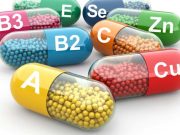Welcome to our blog, where we delve into the topic of drug abuse, its profound impact on individuals and communities, and the importance of raising awareness about this global issue. Join us as we explore the different aspects of drug abuse, including its causes and risk factors, the effects on physical and mental health, strategies for prevention and intervention, and the journey of recovery.
Understanding Drug Abuse:
1.1 Defining Drug Abuse:
Exploring the concept of drug abuse and its distinction from recreational drug use.
Discussing the misuse of prescription drugs, illicit substances, and the potential for addiction.
1.2 Types of Drugs:
Examining different categories of drugs, including stimulants, depressants, hallucinogens, and opioids.
Discussing the varying effects and risks associated with different substances.
1.3 Factors Contributing to Drug Abuse:
Exploring the individual, social, and environmental factors that can contribute to drug abuse.
Discussing factors such as genetic predisposition, peer pressure, trauma, and socioeconomic influences.
Effects of Drug Abuse:
2.1 Physical Health Consequences:
Identifying the physical health effects of drug abuse, including organ damage, increased risk of infectious diseases, and overdose.
Discussing the impact of long-term drug use on overall well-being.
2.2 Mental Health and Behavioral Consequences:
Examining the mental health consequences of drug abuse, such as increased risk of anxiety, depression, and psychosis.
Discussing the behavioral changes, including impaired judgment, risky behaviors, and strained relationships.
2.3 Social and Economic Impact:
Addressing the broader social and economic consequences of drug abuse, including crime rates, healthcare costs, and strain on families and communities.
Discussing the importance of a comprehensive approach to addressing drug abuse.
Prevention and Intervention:
3.1 Primary Prevention:
Exploring strategies for primary prevention, including education programs, public awareness campaigns, and community outreach.
Discussing the importance of promoting healthy coping mechanisms and building resilience in individuals and communities.
3.2 Early Intervention:
Highlighting the significance of early intervention in identifying and addressing drug abuse.
Discussing screening programs, counseling services, and referral systems for individuals at risk or already engaging in drug abuse.
3.3 Harm Reduction:
Discussing harm reduction strategies aimed at minimizing the negative consequences of drug use, such as needle exchange programs, safe injection sites, and access to naloxone for opioid overdoses.
3.4 Treatment Options:
Exploring the different treatment modalities for drug abuse, including detoxification, behavioral therapies, and medication-assisted treatment.
Discussing the importance of personalized treatment plans and ongoing support.
Recovery and Rehabilitation:
4.1 The Journey of Recovery:
Sharing stories of individuals who have successfully overcome drug abuse and highlighting the challenges and triumphs along their recovery journeys.
Discussing the importance of support networks, counseling, and lifestyle changes in sustaining recovery.
4.2 Holistic Approaches:
Exploring holistic approaches to recovery, including addressing underlying mental health issues, promoting self-care, and rebuilding social connections.
Discussing the role of therapy, support groups, and alternative therapies in the recovery process.
4.3 Relapse Prevention:
Highlighting the significance of relapse prevention strategies in maintaining long-term recovery.
Discussing coping mechanisms, stress management techniques, and ongoing support as crucial components of relapse prevention.
Community Support and Advocacy:
5.1 Destigmatizing Drug Addiction:
Addressing the stigma associated with drug addiction and promoting a compassionate and understanding approach.
Discussing the importance of education and raising awareness to challenge stereotypes.
5.2 Support for Families and Communities:
Recognizing the impact of drug abuse on families and communities and highlighting the need for support services.
Discussing family therapy, support groups, and community resources that can aid in healing and rebuilding.
5.3 Advocacy and Policy Changes:
Addressing the importance of advocacy efforts to influence policy changes related to drug abuse prevention, treatment, and rehabilitation.
Discussing the need for comprehensive approaches that prioritize public health and harm reduction.
Conclusion:
As we conclude our exploration of drug abuse, we emphasize the significance of understanding, prevention, and support in addressing this complex issue. By raising awareness, promoting prevention strategies, providing accessible treatment options, and advocating for policy changes, we can work towards a society that supports individuals struggling with drug abuse and fosters pathways to recovery. Join us in future blog posts as we continue to address important societal issues, share stories of resilience, and advocate for a healthier and more compassionate world.






















